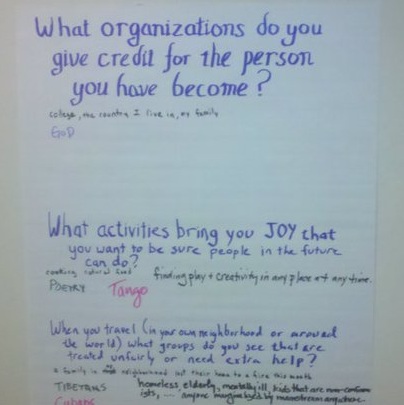High school is a stressful time. Schoolwork, family obligations, paid employment, extracurriculars, college applications–all are major demands on a student’s time. At the same time, teens are still wrestling with questions of identity and how they fit in with the social scene that emerges from their peer group.
Parents, wanting to be helpful, are often not sure how, and can end up making things worse. The birth of new technologies, especially social media, mean that today’s students have a whole new realm to contend with.
In a place like Palo Alto, the culture of success runs deep. Many parents have reached the pinnacle of performance in their selected fields: CEO’s, venture capitalists, serial entrepreneurs, partners of prestigious law firms or ad agencies, executive directors of non-profits. They want their children to live well, and too often that implies “live well off.” Material success is a common goal, but even where parents agree that their children should have the freedom to choose a lower-paying, less prestigious career track, they aim to give their child a “full range of options” by having him or her go to the very best schools, resulting in major pressure to garner admission to Stanford or an Ivy League school.
And so begins the “treadmill”: expectations (both parental- and self-) of academic success; excellence in sports, music, school newspaper or other “meaty” after school activity; volunteering or paid employment; and a range of support services to help prepare for standardized tests and college applications.
This combination has been literally fatal to too many students in the Palo Alto high schools. The community has reflected and responded. Improvements have been made. Support services are stronger.
The cover story/section of the November 18, 2011 Palo Alto Weekly was an excellent multi-faceted review of different programs and experiences of people, both students and those who support them.
There is an interesting sidebar why college is less stressful than high school (more flexibility in choosing classes, more interesting material (professors that probe “why?”), extracurriculars run by students–without as much “resume building” pressure, instructors that treat their students in a more egalitarian way, and just fewer hours of instruction and activity, less competition, and getting away from “pushy parents”).
But the main point of the story is about…
Purpose.
“People don’t worry about the right things,” [William Damon, Professor from Stanford School of Education, author of the book The Path to Purpose: How Young People Find Their Calling in Life] said. “The biggest problem growing up today is not actually stress; it’s meaninglessness.”
Working hard for something they didn’t choose themselves, and don’t believe in, is counterproductive to longterm health and fulfillment. It is simply not sustainable.
A purposeful life, by contrast, can unleash tremendous
energy, creativity, exhilaration and a deep satisfaction
with efforts and accomplishments, according to Damon.
Based on hundreds of surveys and in-depth interviews
with adolescents nationwide, Damon has found that the
vast majority of today’s youth (about 80 percent) are not
engaged in activities fueled by a clear sense of purpose.
Community service was an avenue through which several of the students found their purpose. Youth Community Service (Disclaimer: I’m a huge fan) and Executive Director Leif Erickson (Disclaimer applies here, too…) were featured for their work in service learning programs in the schools. The stories of the students were inspiring.
I’m tempted to quote more and more of the article, but I’ll limit myself to urging you to read the original, and quoting one final sidebar:
How Purpose Begins
The following sequence outlines steps in a path to purpose
for youth, according to researchers’ findings.
- Inspiring communication with persons outside the immediate family
- Observation of purposeful people at work
- First moment of revelation: Something important in the world can be corrected or improved
- Second moment of revelation: I can contribute something myself and make a difference
- Identification of purpose, along with initial attempts to accomplish something
- Support from immediate family
- Expanded efforts to pursue one’s purpose in original and consequential ways
- Acquiring the skills needed for this pursuit
- Increased practical effectiveness
- Enhanced optimism and self-confidence
- Long term commitment to the purpose
- Transfer of skills and character strengths gained in pursuit of one purpose to other areas of life
Source: “The Path to Purpose: How
Young People Find Their Calling in Life”
by William Damon
It was interesting to me that people *outside* the family were instrumental in the initial stages of defining a purpose. Also made me wonder how I, personally, can do a better job of giving teens that glimmer of possibility.

